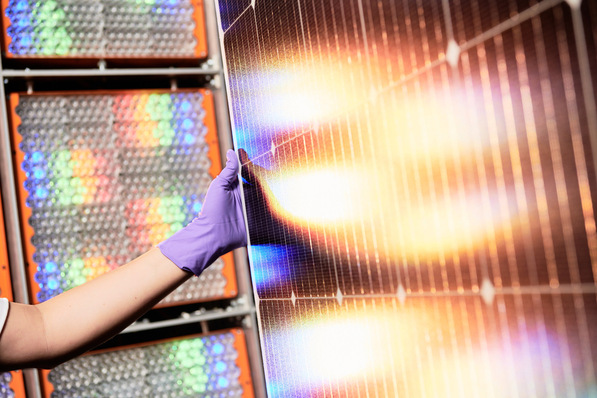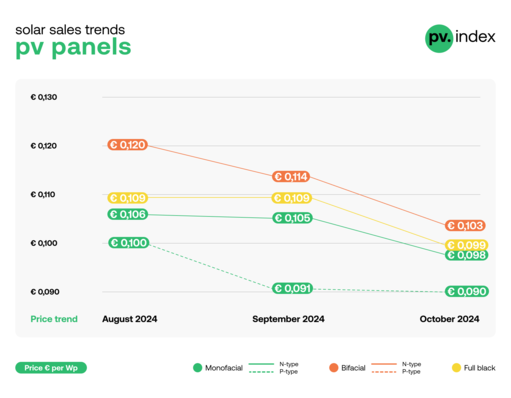Trina Solar announced that its State Key Laboratory (SKL) of PV Science and Technology (PVST) has fabricated a PERC cell with 23.39% efficiency solely using standard manufacturing equipment. To their best of the company's knowledge, this is the highest efficiency confirmed by an ISO/IEC 17025 certified calibration laboratory for such an industrial cell.
Stand screen-printers used
“Progress in PERC cell manufacturing is continuing to be very fast in the whole PV industry”, said Dr. Zhiqiang Feng, the Vice President of Trina Solar and the Director of SKL, “and we are delighted to announce that our R&D team is at the forefront.” Dr. Yang Yang, the director of the PERC research group at SKL, adds: “Our aim is to develop processes that can be transferred to production, therefore we decided to fabricate such champion PERC cells purely on equipment that is part of standard manufacturing lines, like metallization with standard screen-printers”.
Have you missed this? Half-cells generate greater output
Bifacial cell with 9 busbars
The cell has an area of 252 cm2, is bifacial and has 9 busbars as used in many Trina Solar PV modules. The cell was calibrated at ISFH CalTeC in Germany under full area illumination (with full front metallization taken into account) on a brass chuck contacting the whole rear area. The only difference to mass production is that, during deposition of the antireflection coating, parameters were adjusted as slightly as possible so the cell has the improved light trapping properties during calibration in air as the cell has when encapsulated in a module.
No precisely defined category industrial cell
Trina Solar Principal Scientist Dr. Pietro P. Altermatt explains the wider picture: “Each world record refers to a certain category, like ‘laboratory cell’, or ‘cast material’. There is no precisely defined category ‘industrial cell’ because equipment in mass production evolves over time, and it is difficult to provide evidence of exactly how the reported cell was processed. Sometimes, higher PERC cell efficiencies are announced, but without stating details about metallization, or whether passivating contacts were used. This makes it difficult to assess progress in the field. This is why we are open about our manufacturing details”. (HCN)







